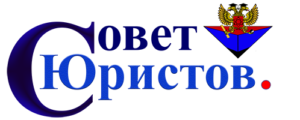Taxation in digital economy
Лашина Ариана Владимировна — ученый специалист компании Совет Юристов
Due to extremely rapidly development and expansion information methods of providing services and selling goods were changed. This changes brought on by the advance of digital instruments by means of which we can perform operations with the special legal regulation of transactions occurring in the Internet space in all sectors of the economy and society. The internet has been pervasive in all sectors: retail, services, education, media, healthcare. Digital economy and its business models present some common features that can be relevant for the existing tax rules, in particular mobility of intangible users, and business functions, reliance on data, network effects from user participation and interaction and spread of multisided business models.
As a general principle income taxes on business profits may be taxed in a given jurisdiction only where a legal entity has a ‘tax nexus’ within it. Current income tax rules and tax treaties were designed at a time when traditional business structure relied more on substantial physical presence.
To apply the legal rules, it is necessary to determine the mechanism for determining the subject and object side of legal relations.
The article presents the Adaptation Model to integrate cyberspace law and e-commerce taxation. The Integrative Adaptation model consists of four layers of adaptation:
1) Developing income-classification rules and residency rules by Russian law,
2) Introducing new source rules based on the location of the parties to the transaction and the physical income production components
3) Using technology to apply the tax regime to e-commerce
4) Gaining international consensus through international treaties.
Источники и литература:
- Agrawal, David R. 2015a. “The Internet as a Tax Haven? The Effect of the Internet on Tax Competition,” SSRN Working Paper.
- Baugh, Brian, Itzhak Ben-David and Hoonsuk Park. 2014. “The Amazon Tax: Empirical Evidence from Amazon and Main Street Retailers,” NBER Working Paper.
- Multinational Activity,” FinanzArchiv / Public Finance Analysis, 68 (2): 1-21. Slemrod, Joel. 2015. “Tax Administration and Tax Systems,” IEB Working Paper 2015/13.
- Zodrow, George. 2006. “Optimal Commodity Taxation of Traditional and Electronic Commerce,” National Tax Journal, 59, 7-31.
- KHAVANOVA, leading research fellow of the Institute of Legislation and Comparative Law under the Government of the Russian Federation, doctor of legal sciences
- Krokhina, Yu. A. Tax law: a textbook for academic bachelor / Yu. A. Krokhina. — 8th ed., Pererab. and add. — M.: Publishing house Yurayt, 2018. — 428 p.
- “Tax man wants to level the digital playing field,” The Toronto Star, January 24, 2015.
